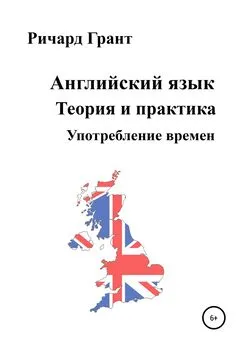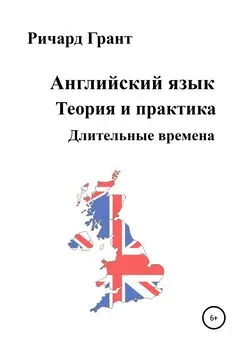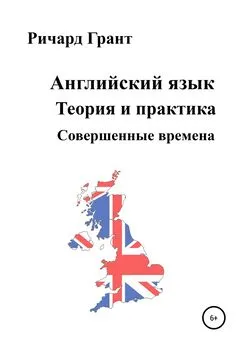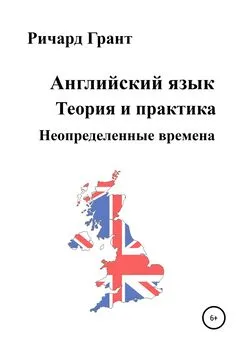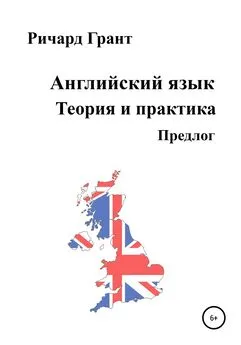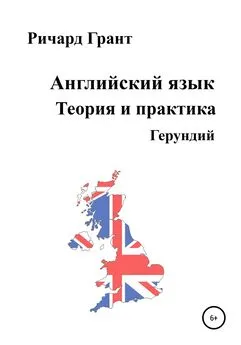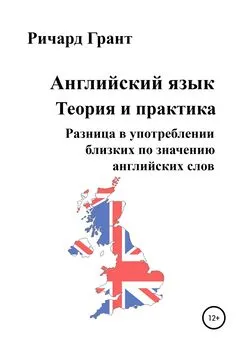Ричард Грант - Английский язык. Теория и практика. Употребление времен
- Название:Английский язык. Теория и практика. Употребление времен
- Автор:
- Жанр:
- Издательство:неизвестно
- Год:2021
- ISBN:978-5-532-95218-8
- Рейтинг:
- Избранное:Добавить в избранное
-
Отзывы:
-
Ваша оценка:
Ричард Грант - Английский язык. Теория и практика. Употребление времен краткое содержание
Освоив теоретический материал, представленный в данной серии, и выполнив более 600 упражнений для самоконтроля, ваш словарный запас будет состоять из более чем 6 000 английских слов и выражений, что позволит вам успешно сдать такие международные экзамены по английскому языку, как TOEFL (Test of English as a Foreign Language), IELTS (International English Language Testing System) и другие.
Английский язык. Теория и практика. Употребление времен - читать онлайн бесплатно ознакомительный отрывок
Интервал:
Закладка:
2. Законченный период времени или текущий.
Если мы говорим о периоде времени, который все еще продолжается, употребляем Present Perfect. Часто на текущий период указывают такие слова-маркеры, как today (сегодня), this week (на этой неделе) , this month (в этом месяце) и this year (в этом году).
Если период закончен, используем Past Simple. На него указывают следующие слова-маркеры: last week (на прошлой неделе), last month (в прошлом месяце), last year (в прошлом году).
I haven’t seen you in the office this week. – Я не видел тебя в офисе на этой неделе. (неделя не закончилась)
I didn’t see Sofie at work last week. – Я не видел Софи на работе на прошлой неделе. (прошлая неделя закончилась)
3. Связь с настоящим и факт из прошлого.
У Present Perfect всегда есть какая-то привязка к настоящему, тогда как при помощи Past Simple можно просто изложить факты о прошлом.
We’re so happy! We have learnt English! – Мы так счастливы ! Мы выучили английский! (мы счастливы сейчас – привязка к настоящему)
Ivan learned English at school. – Иван учил английский в школе . (факт из прошлого)
Упражнение 30
Раскройте скобки, употребляя глаголы в Present Perfect или Past Simple.
1. Helen speaks French so well because she ( to live) in France. 2. Last night I ( to feel) tired and ( to go) to bed very early. 3. I ( not yet to eat) today. 4. She just ( to go) out. 5. It ( to be) very cold yesterday. 6. She ( to live) there last year. 7. Where you ( to spend) your holidays? 8. He ( not to eat) yesterday. 9. She ( to leave) the room a moment ago. 10. When you ( to meet) him? 11. The rain ( to stop) and the sun is shining in the sky again. 12. You ever ( to spend) your holidays in the Crimea? 13. You ( to play) the piano yesterday?
Упражнение 31
Раскройте скобки , употребляя глаголы в Present Perfect или Past Simple.
1. We ( not yet to solve) the problem. 2. I ( not to see) him since 2006. 3. The rain ( to stop) half an hour ago. 4. While travelling in the Crimea, I ( to meet) your friend. 5. You ( to play) the piano today? 6. When it all ( to happen)? 7. How many mushrooms you ( to gather)? 8. Mary ( to buy) a new hat. 9. I never ( to visit) that place. 10. What you ( to prepare) for today? 11. The morning was cold and rainy, but since ten o’clock the weather ( to change) and now the sun is shining brightly. 12. Where you ( to put) the newspaper? I want to read it, but cannot find it anywhere. 13. I ( to buy) a pair of gloves yesterday.
Упражнение 32
Раскройте скобки, употребляя глаголы в Present Perfect или Past Simple.
1. He ( to visit) that place last year. 2. Look at this birdhouse. Mike ( to make) it himself. He ( to make) it last Sunday. 3. Show me the dress which you ( to make). 4. The new school ( to begin) working last year. 5. The wind ( to blow) off the man’s hat, and he cannot catch it. 6. I just ( to get) a letter from Tom. 7. Where you ( to put) my pen? I cannot find it. 8. Oh, how dark it is! A large black cloud ( to cover) the sky. I think it will start raining in a few minutes. 9. At last I ( to do) all my homework: now I will go out. 10. The weather ( to change), and we can go for a walk. 11. You ( to take) any photographs while travelling in the south? 12. You ( to see) Mary today? 13. Oh, close the window! Look, all my papers ( to fall) on the floor because of the wind.
Упражнение 33
Раскройте скобки , употребляя глаголы в Present Perfect или Past Simple.
1. The building of the house ( to begin) early in April. 2. The wind ( to change) in the morning. 3. He ( to be) abroad five years ago. 4. When you ( to see) Mary? – I ( to see) her last week. 5. When you ( to open) the window? – I ( to open) it ten minutes ago. 6. The rain ( to stop) but a cold wind is still blowing. 7. We ( to travel) around Europe last year. 8. You ( to be) in the Caucasus last year? 9. Your mother ( to promise) to take you to the theatre? 10. The sun ( not to rise) yet, but the sky in the east is getting lighter every minute. 11. We already ( to solve) the problem. 12. My father knows so much because he ( to travel) a lot. 13. They ( to leave) England when he ( to be) still a child.
Упражнение 34
Раскройте скобки, употребляя глаголы в Present Perfect или Past Simple.
1. Look at my new dress! I ( to make) it myself. 2. I ( to see) you walking along the street the other day with a heavy bag. 3. He ( to come) a moment ago. 4. I ( to see) Pete today. 5. He ( not yet to come) back. 6. He is not at school today, he ( to fall) ill. – When he ( to fall) ill? – He ( to fall) ill yesterday. 7. I ( not to read) the newspaper today. 8. I never ( to speak) to him. 9. She ( to see) this film last Sunday. 10. He ( to go) already? 11. I already ( to do) my homework. Now I can go for a walk. 12. It is very late, and trams ( to stop) running: we must find a taxi to get home. 13. He just ( to finish) his work.
Упражнение 35
Раскройте скобки , употребляя глаголы в Present Perfect или Past Simple.
1. Alex ( to meet) his friend two hours ago. 2. When you ( to see) him last? 3. I ( to do) my homework yesterday. 4. How many times you ( to be) to Toronto? 5. You ( to make) any spelling mistakes in your dictation? 6. I just ( to meet) our teacher. 7. I ( not to see) him for ages. 8. He just ( to come) home. 9. At last I ( to translate) this article: now I will have a little rest. 10. What books you ( to read) when you ( to live) in the country? 11. The children already ( to decide) what to do with the books. 12. His health ( to improve) greatly since I ( to see) him last. 13. He ( to come) home a minute ago.
Упражнение 36
Раскройте скобки , употребляя глаголы в Present Perfect или Past Simple.
1. We ( to go) to the country yesterday, but the rain ( to spoil) all the pleasure. 2. They ( not yet to come) from the south. 3. Yesterday they ( to decide) to help their grandmother. 4. You ( to pass) your driving test yet? – Yes, I ( to pass) it in May, but I ( not to buy) a car yet. 5. Nick ( to play) football yesterday. 6. My watch was going in the morning, but now it ( to stop). 7. He ( to be) ill last week, but now he ( to recover). 8. I ( not to see) you for a long time. I ( to see) you in town two or three days ago, but you ( not to see) me. I ( to be) on a bus. 9. He already ( to move). He ( to find) a nice flat last Christmas and he ( to be) there a year already. 10. She already ( to come) from school. Now she is doing her homework. 11. The lecture ( not yet to begin) and the students are talking in the classroom. 12. If everybody ( to read) this new novel, let’s discuss it. 13. I ( to read) this book last year.
Упражнение 37
Раскройте скобки, употребляя глаголы в Present Perfect или Past Simple.
1. You ( to book) tickets? – Yes, I …. I ( to book) them several days ago. 2. I ( to read) this book this year. 3. I can hardly recognize you. I ( not to see) you since you ( to leave) for Toronto. And you ( to change) so much. 4. I never ( to be) to Washington. 5. You ( to read) all the books on this shelf? 6. You ever ( to be) to New York? 7. I ( not to see) my cousin since last year. 8. I don’t think you ever ( to see) Niagara Falls. 9. Why you ( to put) these things in the wrong place? 10. I ( to invite) Linda to the party. – When you ( to see) her? – I ( not to see) her for ages. I ( to call) her an hour ago. 11. Why you ( to leave) the door open? You will catch cold sitting in the draught. 12. “We ( not to meet) for such a long time!” said my friend. “Yes, indeed,” I answered, “and we both ( to grow).”
Разница между The Past Simple и The Past Perfect
Past Simple используется, когда действия происходят в хронологическом порядке, а Past Perfect – когда нужно показать, какое действие произошло первым, раньше остальных действий.
He started the car, turned the radio on and fastened the seat belt. – Он завел машину , включил радио и пристегнул ремень безопасности .
Читать дальшеИнтервал:
Закладка:
